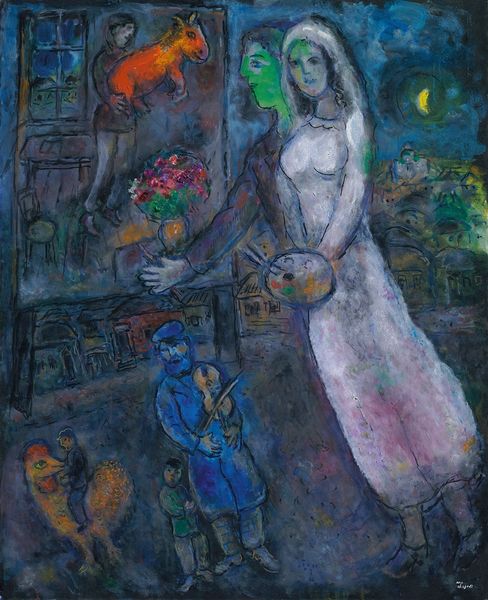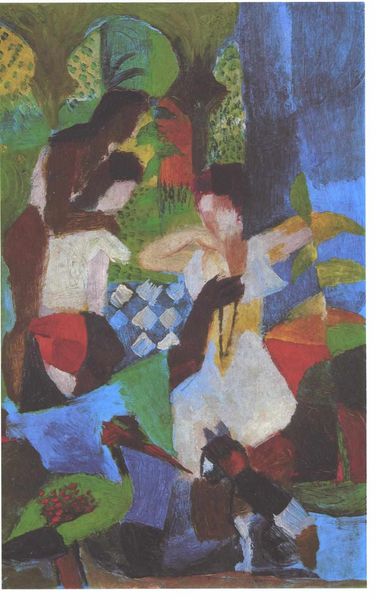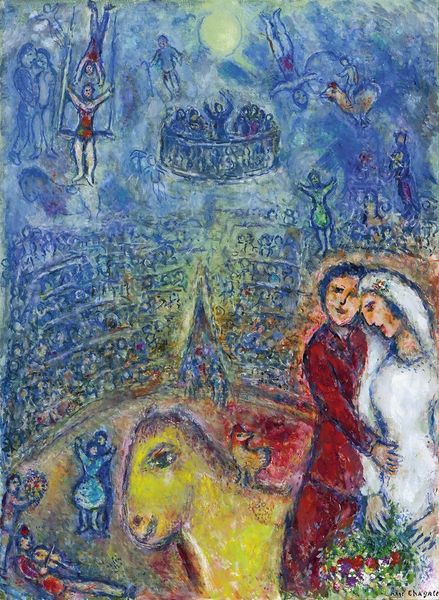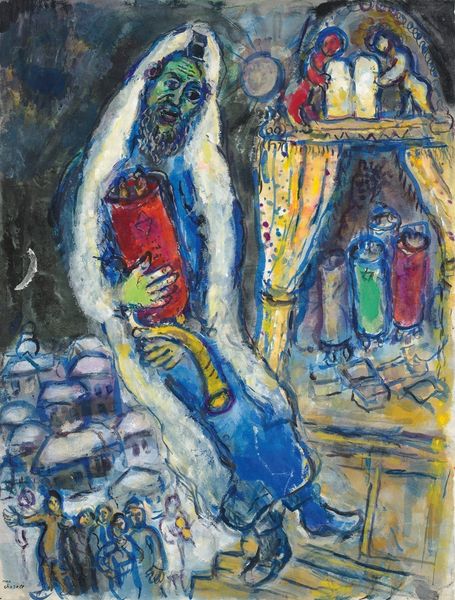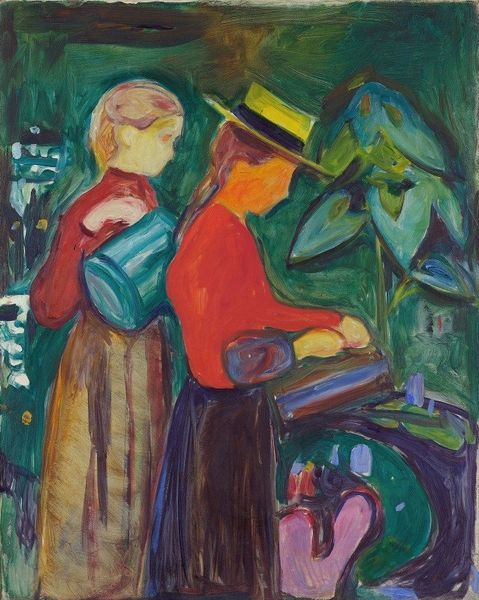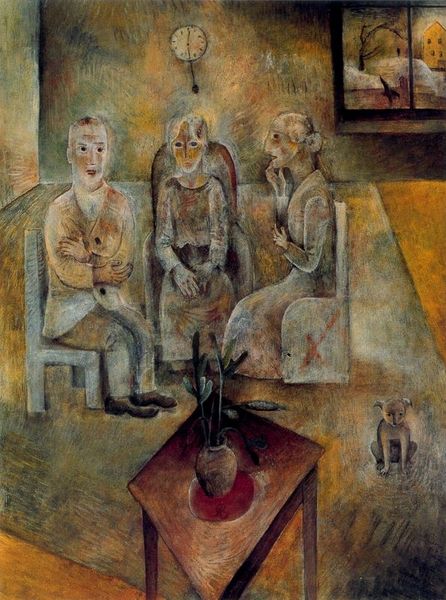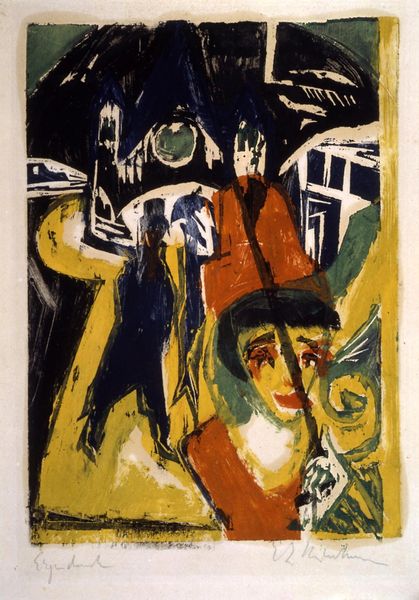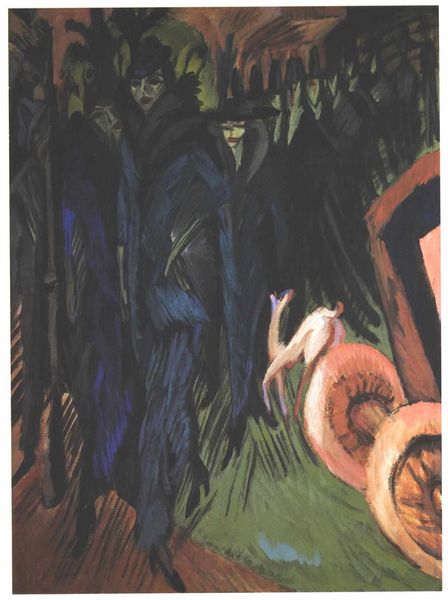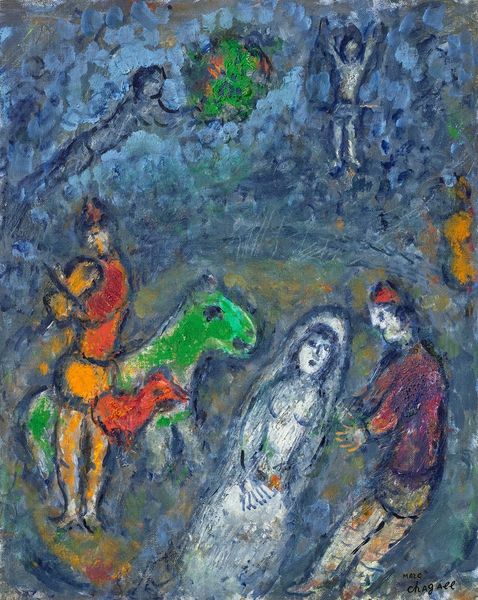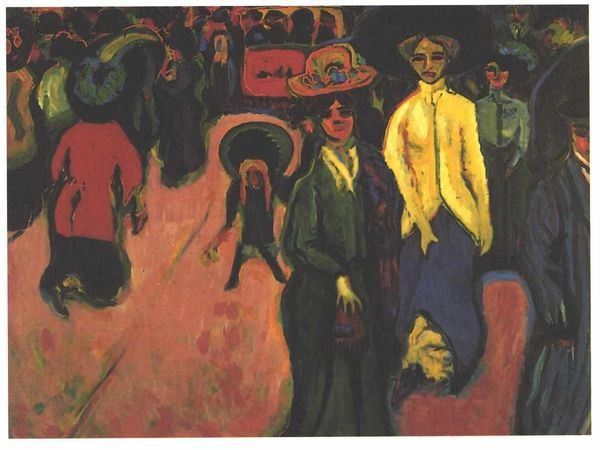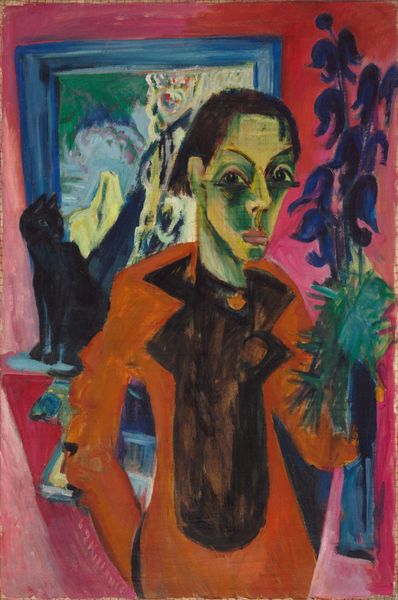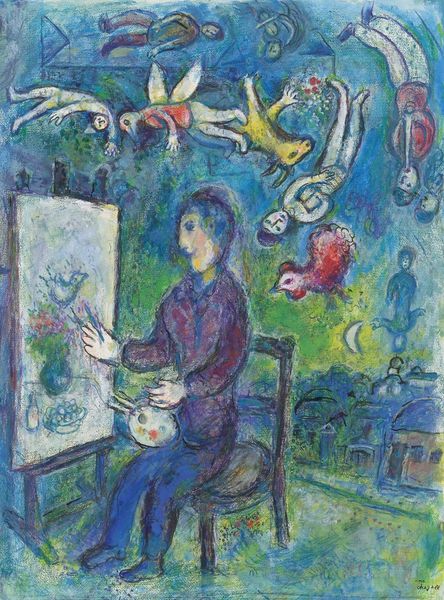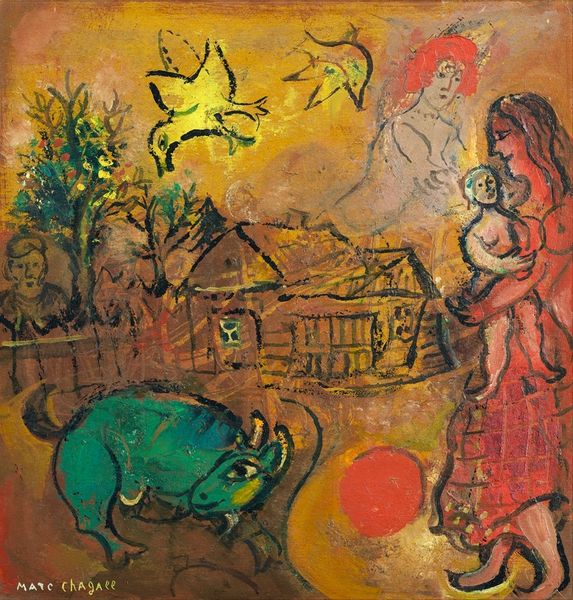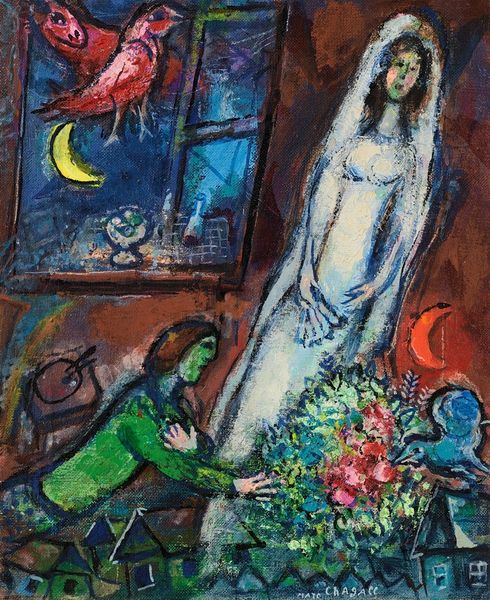
painting, oil-paint
#
portrait
#
narrative-art
#
painting
#
oil-paint
#
german-expressionism
#
figuration
#
oil painting
#
expressionism
Copyright: Public domain
Editor: So this is Walter Gramatté’s “Confession” from 1920. It's an oil painting, and it’s incredibly… unsettling. The figures are so gaunt, and that oppressive blue! What do you see in this piece, looking at it through a materialist lens? Curator: I see a social landscape forged in the aftermath of war. Consider the materials—oil paint, a readily available and relatively inexpensive medium even in times of scarcity. Its use here signals a certain accessibility, reflecting a democratization of artmaking, perhaps even born of necessity. The rough application of the paint itself… notice the visible brushstrokes, the lack of blending. It's raw, immediate. Think about the labor involved: Gramatté wrestling with his materials to depict this scene. It is far from idealizing anything. Editor: So you're saying the roughness itself speaks to a kind of postwar austerity? Curator: Precisely! And look at the setting: a stark, almost industrial-feeling space for a church, stripped of ornamentation. Could it suggest a critique of organized religion or just be related to shortages in building material after WW1? How can we understand the subjects and what materials would have been available to them for the confessional? Their expressions – strained, almost pained. It hints at a societal confession, a collective acknowledgement of trauma, reflected in the very materiality of the work. Editor: That's a perspective I hadn't considered. The way the materials themselves tell a story beyond just the image...it is fascinating! Curator: Art doesn't exist in a vacuum. It's a product of its time, its social and economic realities, manifested in the very stuff it's made of. What about you - does seeing the confession scene this way resonate in modern society today? Editor: Absolutely. Thinking about art in terms of labor and materiality… it makes the human cost so much more real. Thanks!
Comments
No comments
Be the first to comment and join the conversation on the ultimate creative platform.
